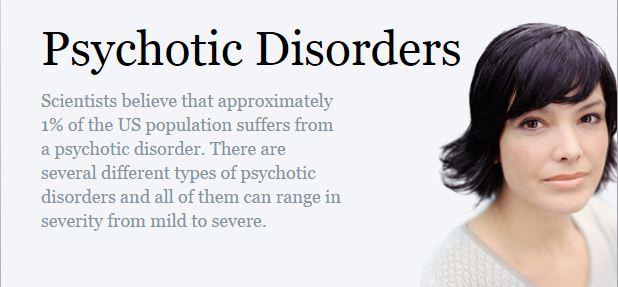Understanding Brief Psychotic Disorders
As the name suggests, brief psychotic disorder is a psychiatric condition that appears all of sudden, yet lasts for a short-term. It can be for a period of 30 days or less, sometimes for even a day. While these temporary symptoms don’t indicate the existence of a chronic mental health condition, they may be, in some cases, severe enough to lead a person to suicide.
Generally, brief psychotic disorder-related cases occur when individuals are in their 20’s or 30’s.
Symptoms
A person with this condition may exhibit some, or all, of the following symptoms:
- Disoriented speech
- Hallucinations
- Memory loss
- Delusions
- Sleeping and eating disorders
- Disorganized behavior
- Showing difficulty in making decisions
According to medical experts, women have a larger tendency to having this disorder than men. In women who have given birth, the condition may arise within four weeks of the childbirth as postpartum depression.
Normally, these symptoms don’t impair or hinder a person’s normal life and after one episode, people are generally able to resume their daily activities. But for people who already have a psychiatric condition or personality disorder, these symptoms may be more extreme and can be the first sign of a severe mental health condition like schizophrenia or schizoaffective disorder.
How Is It Caused
Medical experts haven’t found a definite cause for the condition. Many link it to genetic as this condition tends to run in families. People who have a family history of mood disorders, bipolar disorder or depression are more likely to have the condition at some point.
There are two forms of the disorder: brief psychotic disorder with obvious stressors, and brief psychotic disorder without a trigger.
Brief psychotic disorder with obvious stressor occurs after an unforeseen, stressful or traumatic event. The event that causes behavioral change is called a stressor or a trigger and it can be the death of a loved one or a natural disaster or any other stressful event.
In women who have recently given birth, the condition arrives within the four weeks of giving birth to a child.
Brief psychotic disorder without obvious stressor occurs without any apparent traumatic or stressful event to which the condition can be linked.
Treatment
Brief psychotic disorders are treatable and the person suffering from them can recover completely. However, a medical practitioner will need to detect the presence of other psychiatry conditions of which the temporary condition may be a symptom. Once the existence of a mental health problem is ruled out, medical practitioners may prescribe antidepressants or anti-psychotic medications.
For patients with mild behavioral changes, doctors will also opt for therapy. The goal of this treatment is to help patients identify the event that lead to the condition and to be in control of this reaction.
Recovery
Usually, people who have had the first episode are able to cope with the condition in a short time after initial supervision. They can take their medications and learn how to deal with stress. Those whose condition doesn’t improve within the first six months of the treatment may either experience another episode or be diagnosed with a chronic psychotic disorder such as schizophrenia.
PAKC are experienced physicians with the expertise of both medication management and psychotherapy. They take a holistic approach based on compassion and empathy to deal with mental disorders including depression. PAKC also oversees the IV ketamine treatment for treatment-resistant depression cases.



